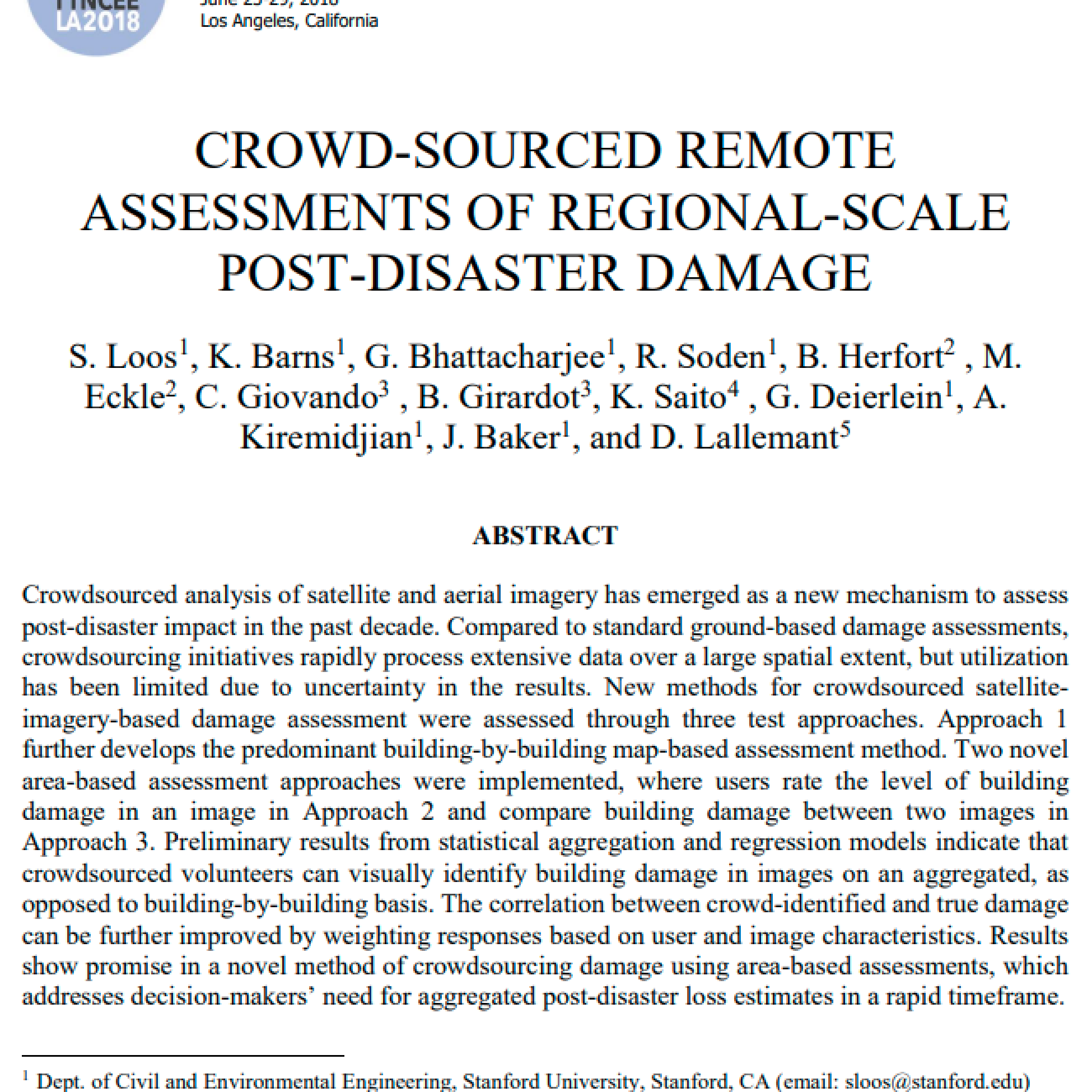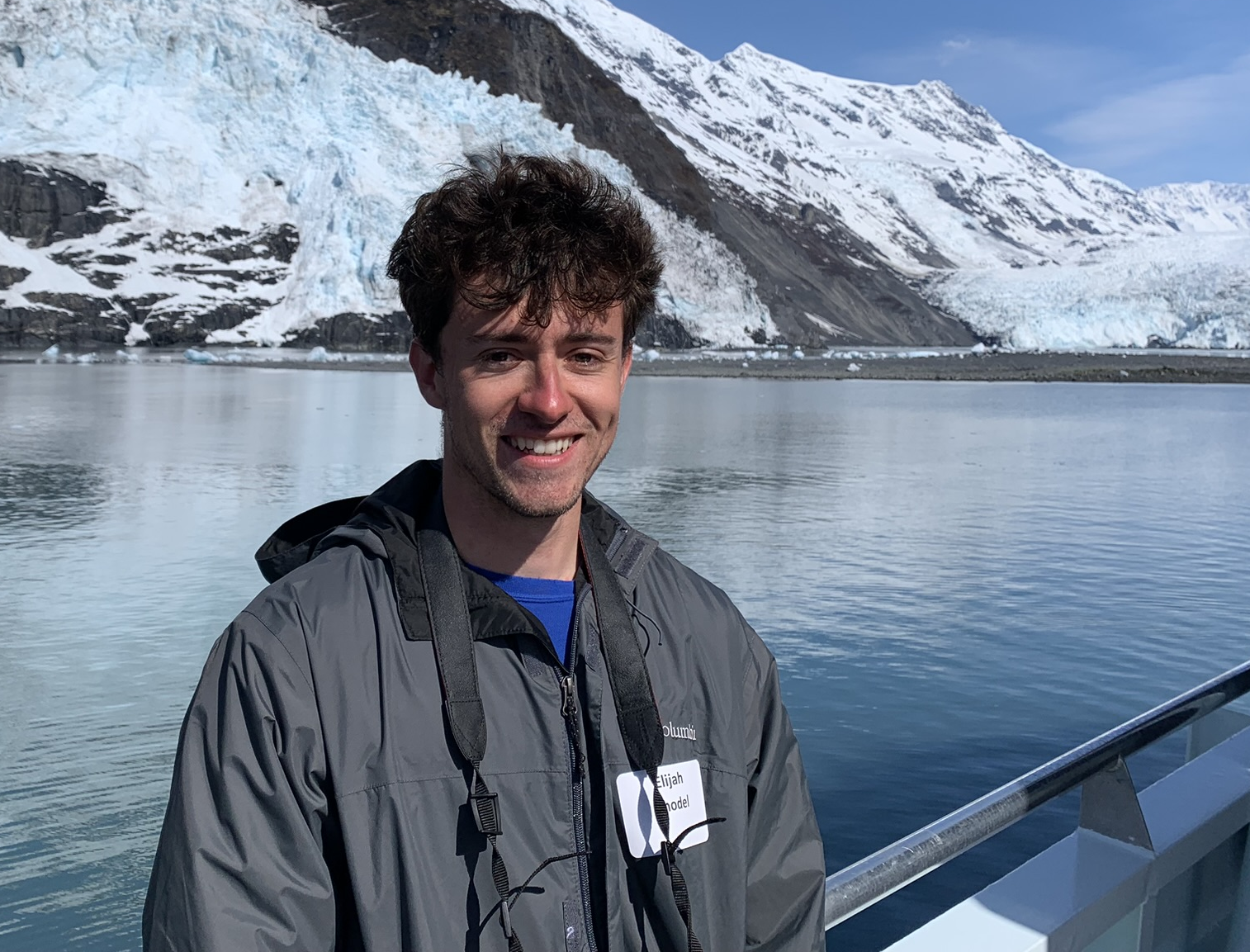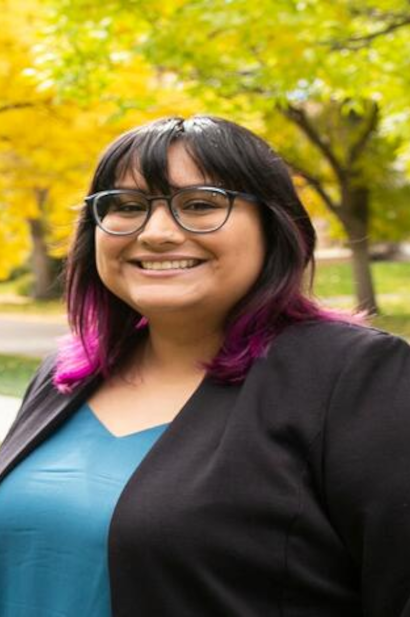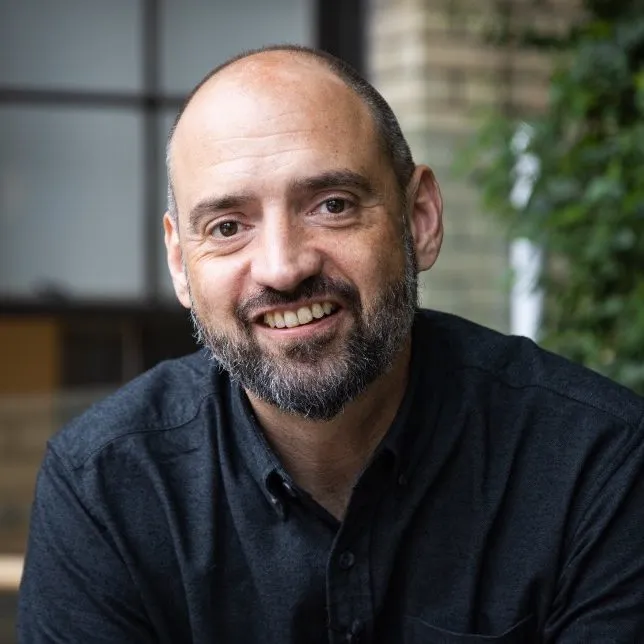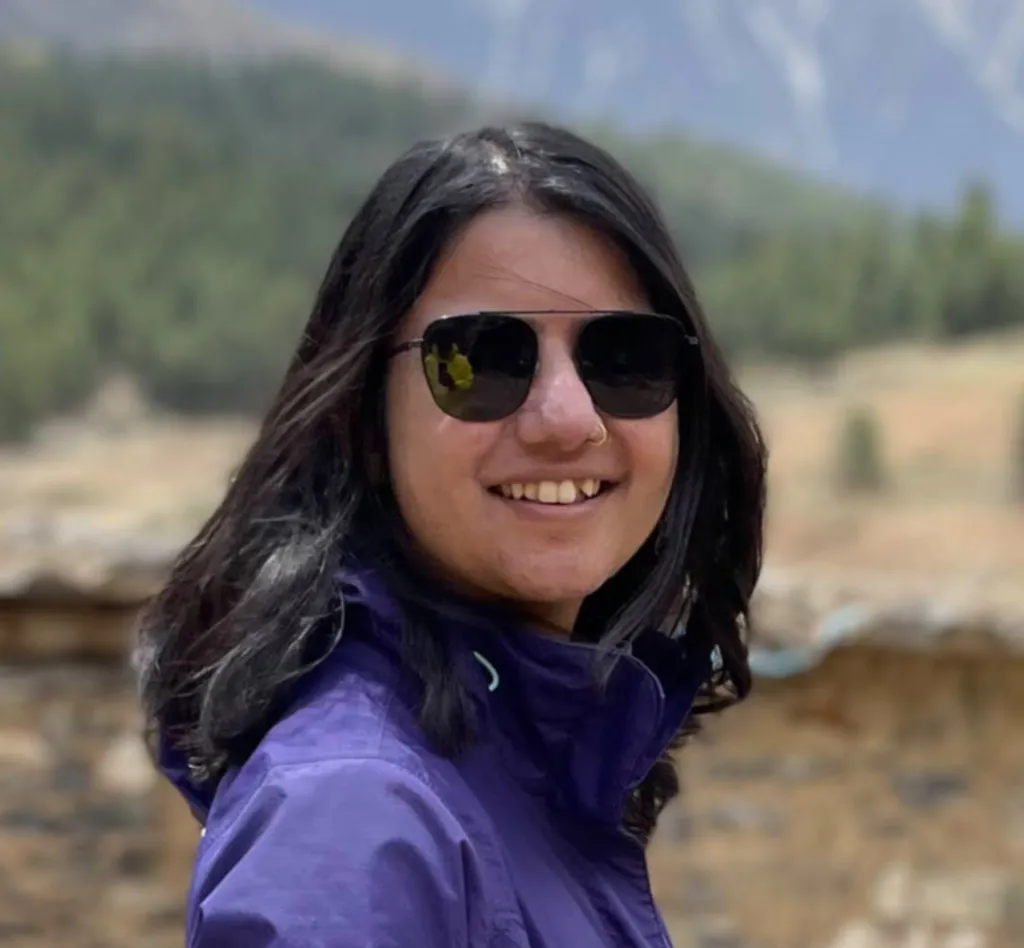Content
This study examines how short- and long-term household housing satisfaction can serve as a more meaningful measure of reconstruction outcomes reflecting affected households’ lived experiences.
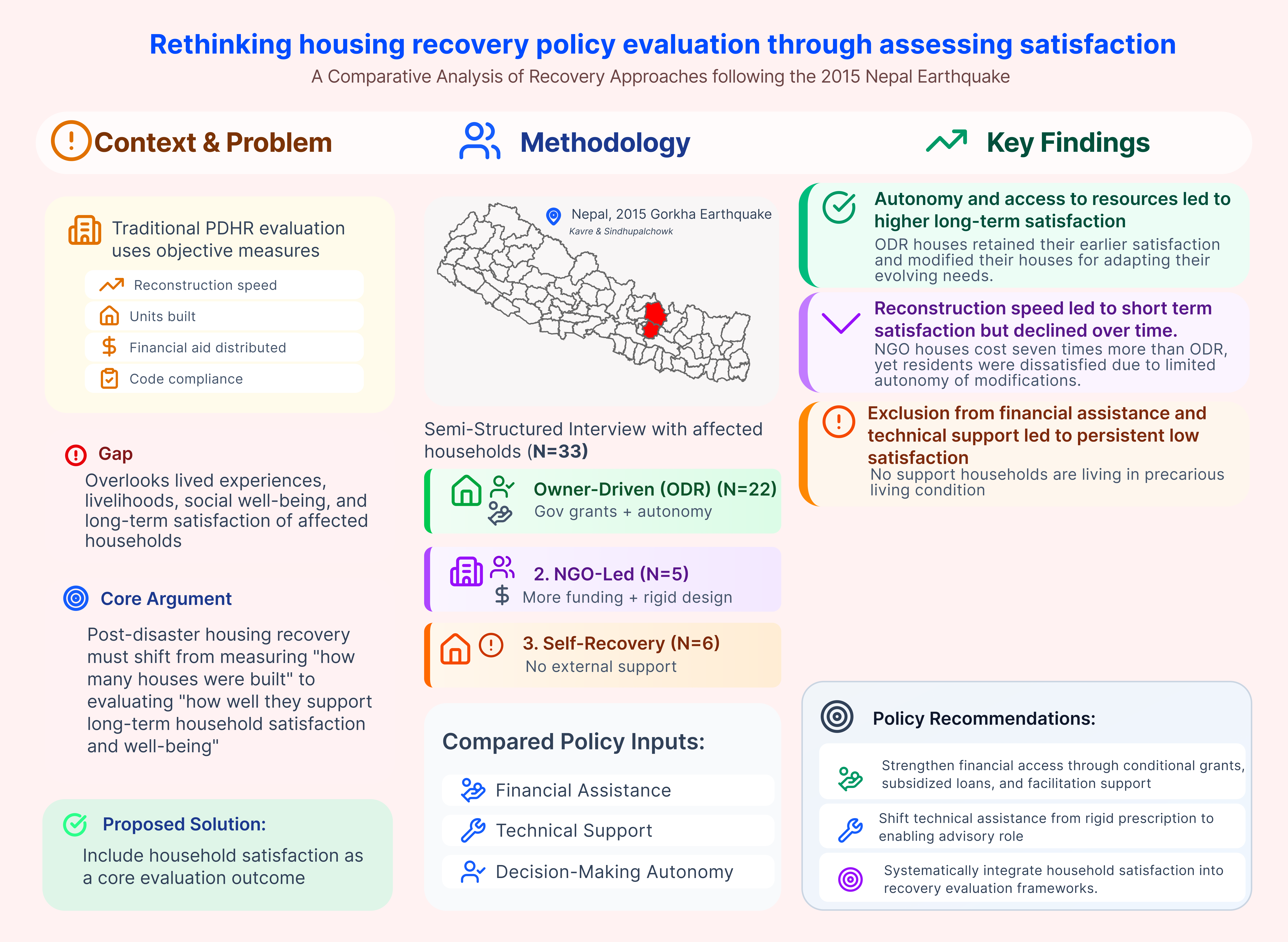
Rethinking housing recovery policy evaluation through assessing satisfaction
A global analysis of the characteristics that drive interaction with the U.S. Geological Survey's "Did You Feel It?" product
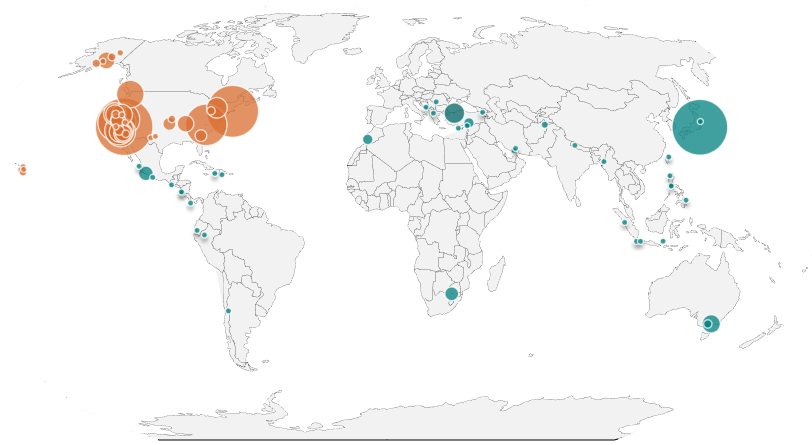
The Intensity Gap: A Global Analysis of Who Responds to the Crowdsourced Did You Feel It? System

Achieving Collective Impact in Earthquake Science Podcast
Despite research demonstrating the disproportionate effects of disasters on vulnerable groups, current risk modeling approaches lack robust methods to account for such equity concerns. Consequently, efforts to develop evidence-based disaster risk management interventions may lack awareness of differential risks in the settings where they are applied. Here, we draw on the relevant literature to develop a typology for characterizing current approaches to incorporating equity into risk modeling.
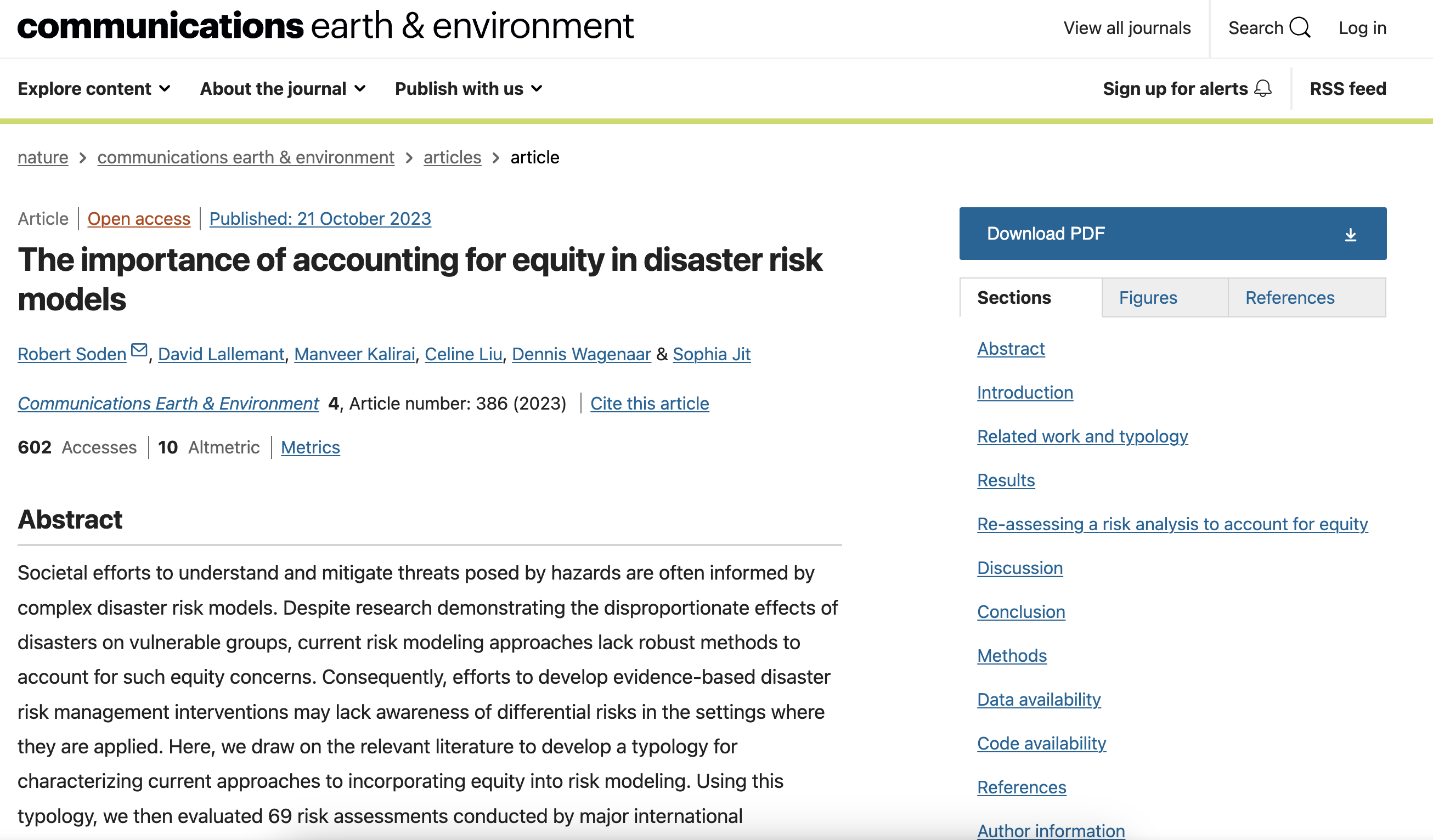
The importance of accounting for equity in disaster risk models
The introduction to the Special Issue on Longitudinal Recovery
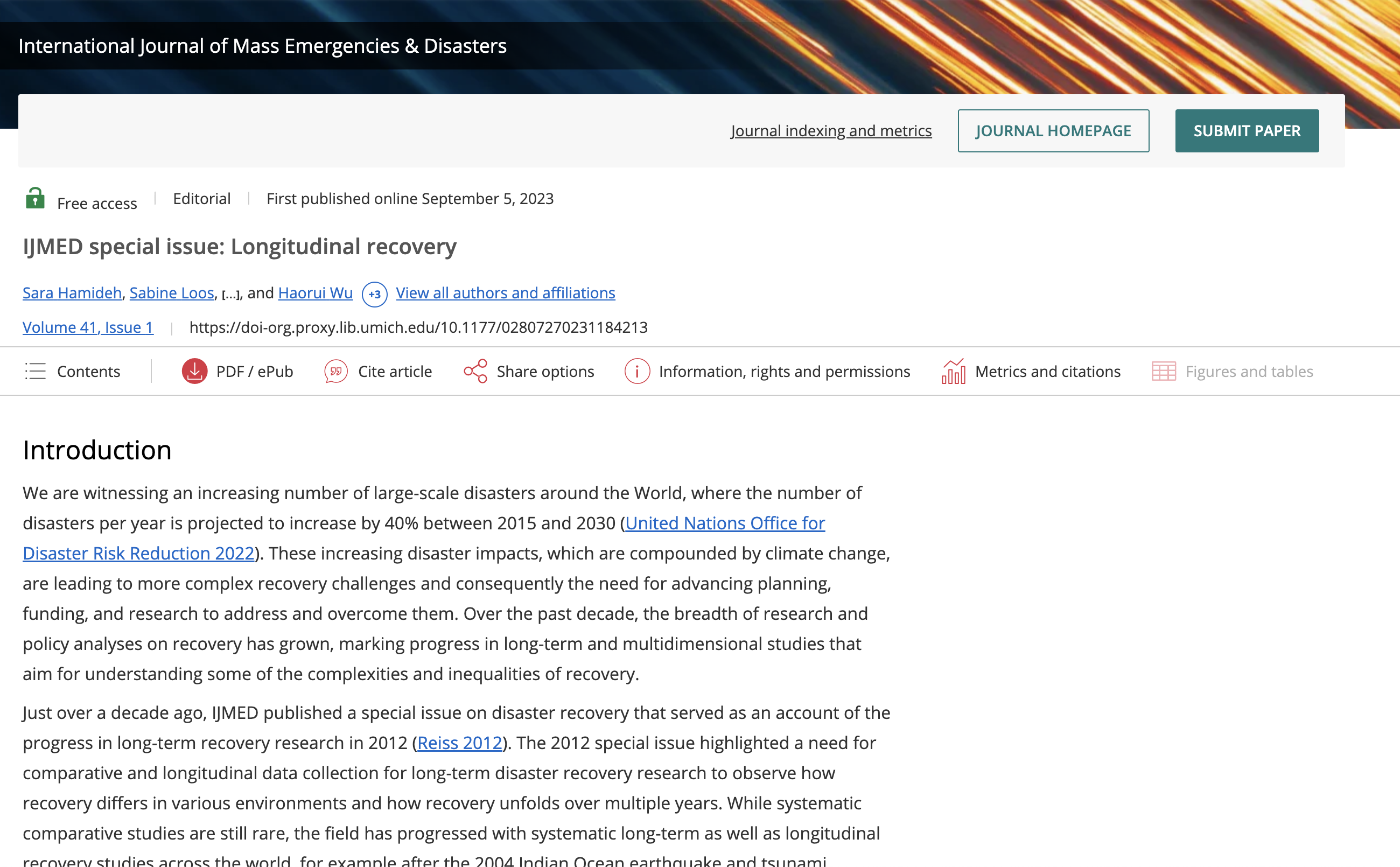
IJMED Special Issue: Longitudinal Recovery
This poster provides an overview of research to understand who access DYFI? globally.
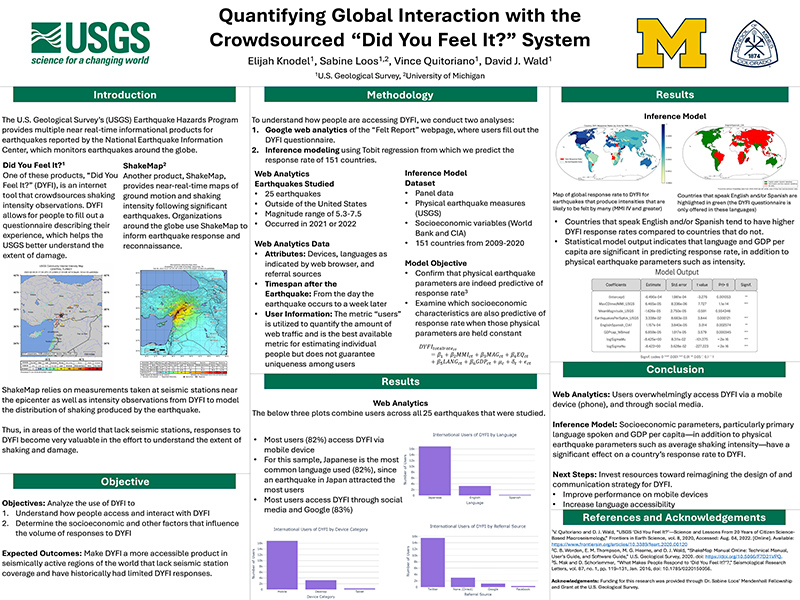
Quantifying Global Interaction with the Crowdsourced ''Did You Feel It?'' System
In this paper, we draw on postcolonial, decolonial, and anti-colonial theory and a case study of a multi-hazard disaster and climate risk assessment project conducted in Nepal to examine a potential limit of contemporary environmental data practices – the potential to extend or reinforce colonial knowledge systems and extractive relationship to land.
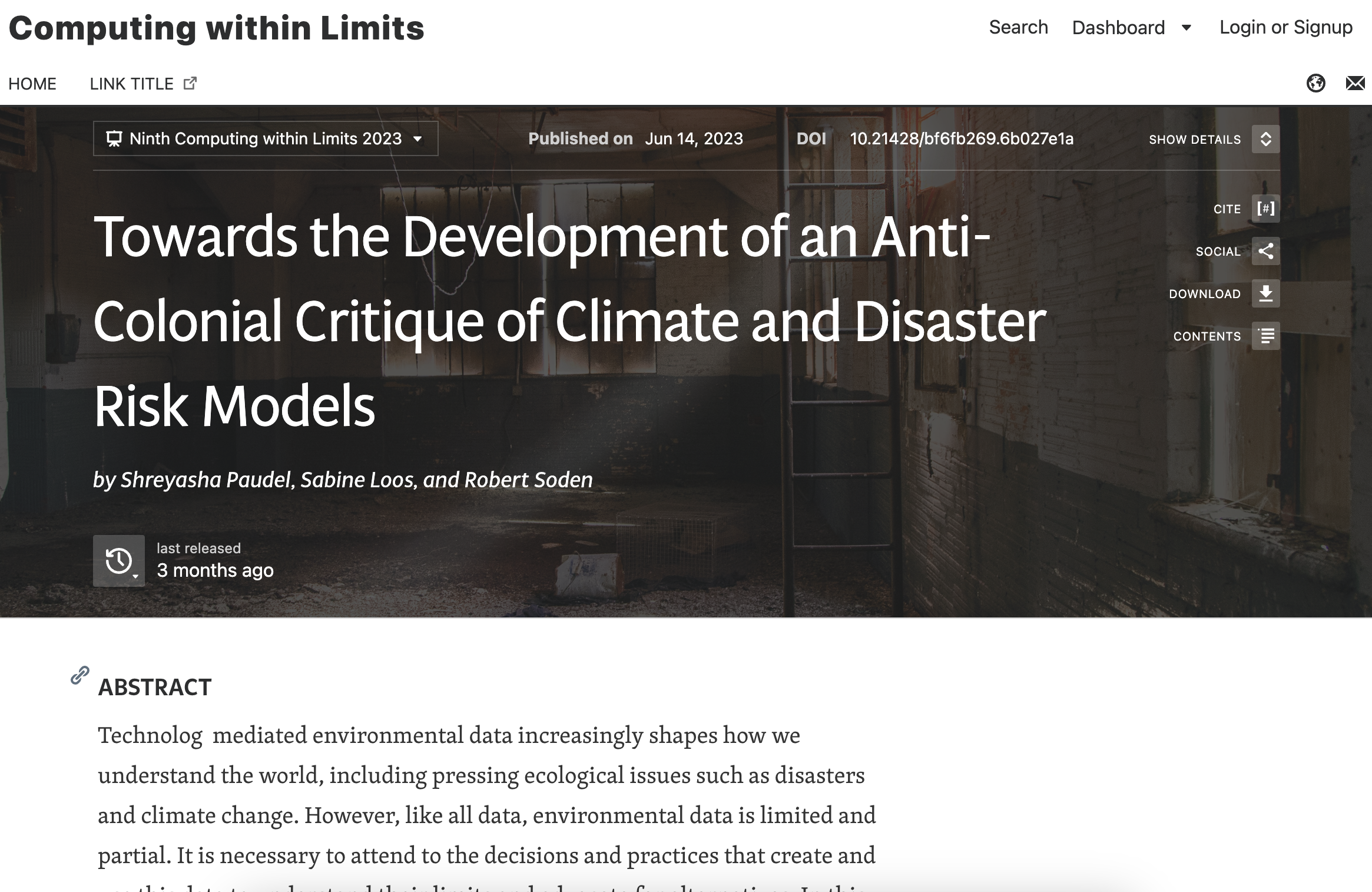
Towards the Development of an Anti-Colonial Critique of Climate and Disaster Risk Models
This poster, which won 1st place for Theoretical and Social Sciences, provides an overview of user engagement to design more actionable earthquake information products at the USGS.
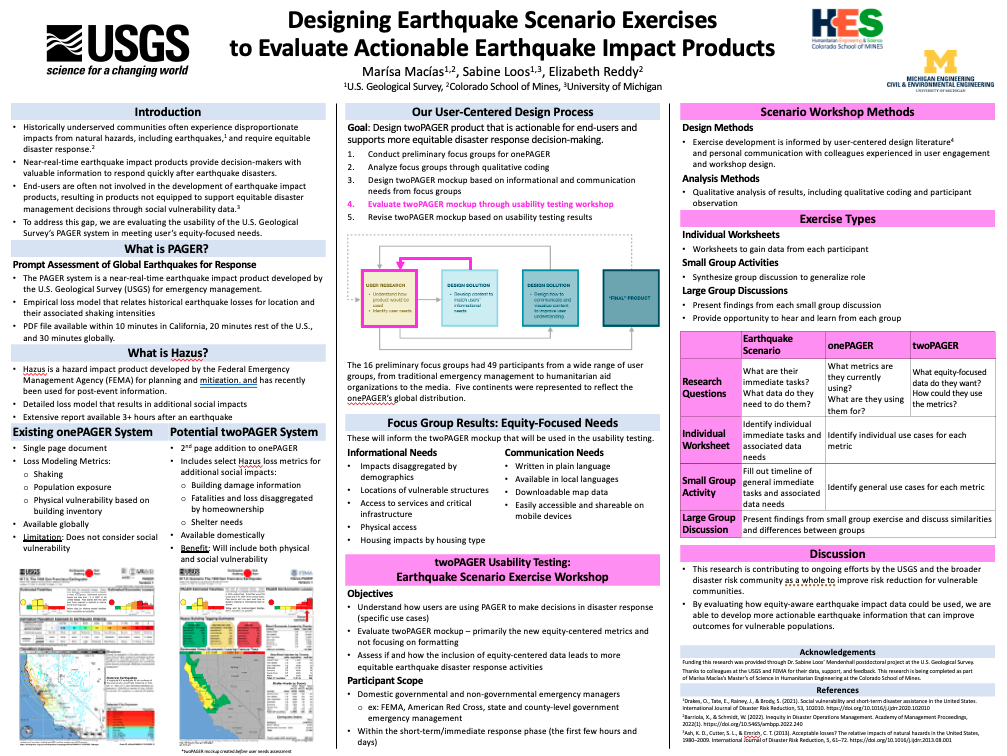
Designing Earthquake Scenario Exercises to Evaluate Actionable Earthquake Impact Products
Post-disaster data overwhelmingly focuses on immediate impacts on buildings rather than the long-term needs of populations who live inside those buildings. As shown in this study of the 2015 earthquake in Nepal, data can instead be leveraged to capture the recovery needs of vulnerable populations.
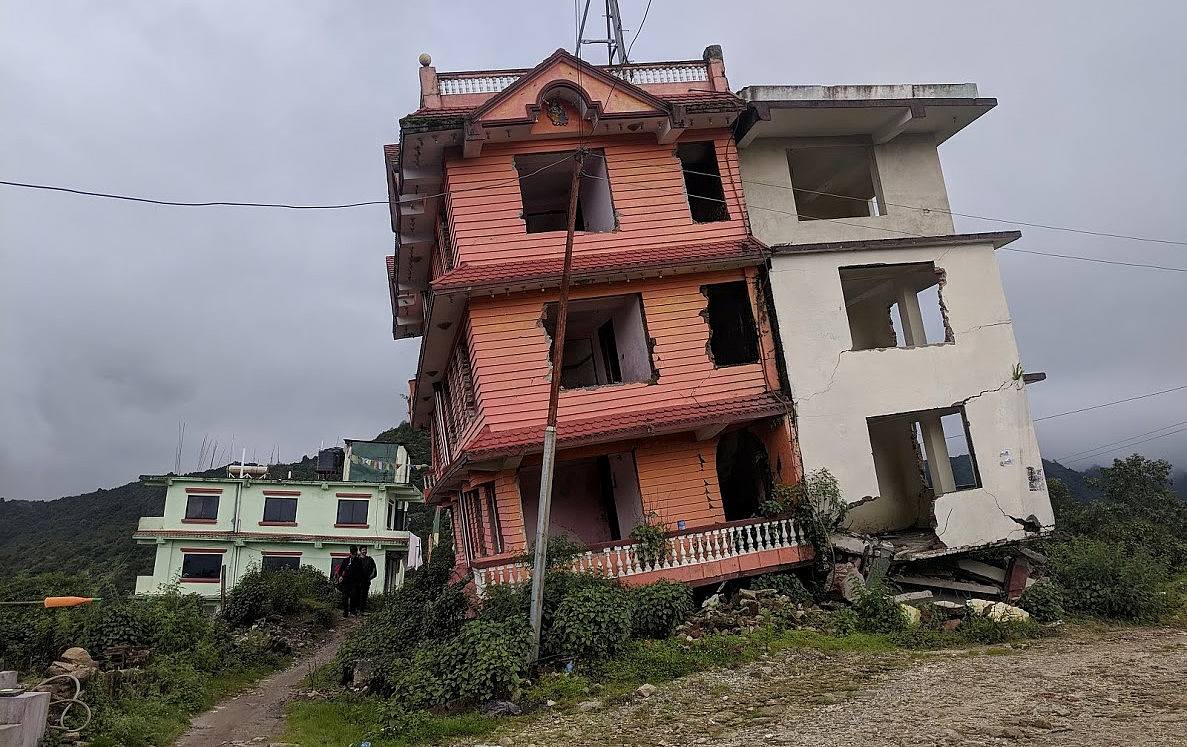
Big data for whom? Data-driven estimates to prioritize the recovery needs of vulnerable populations after a disaster
Going beyond building damage to support vulnerable populations' recovery needs after a disaster.
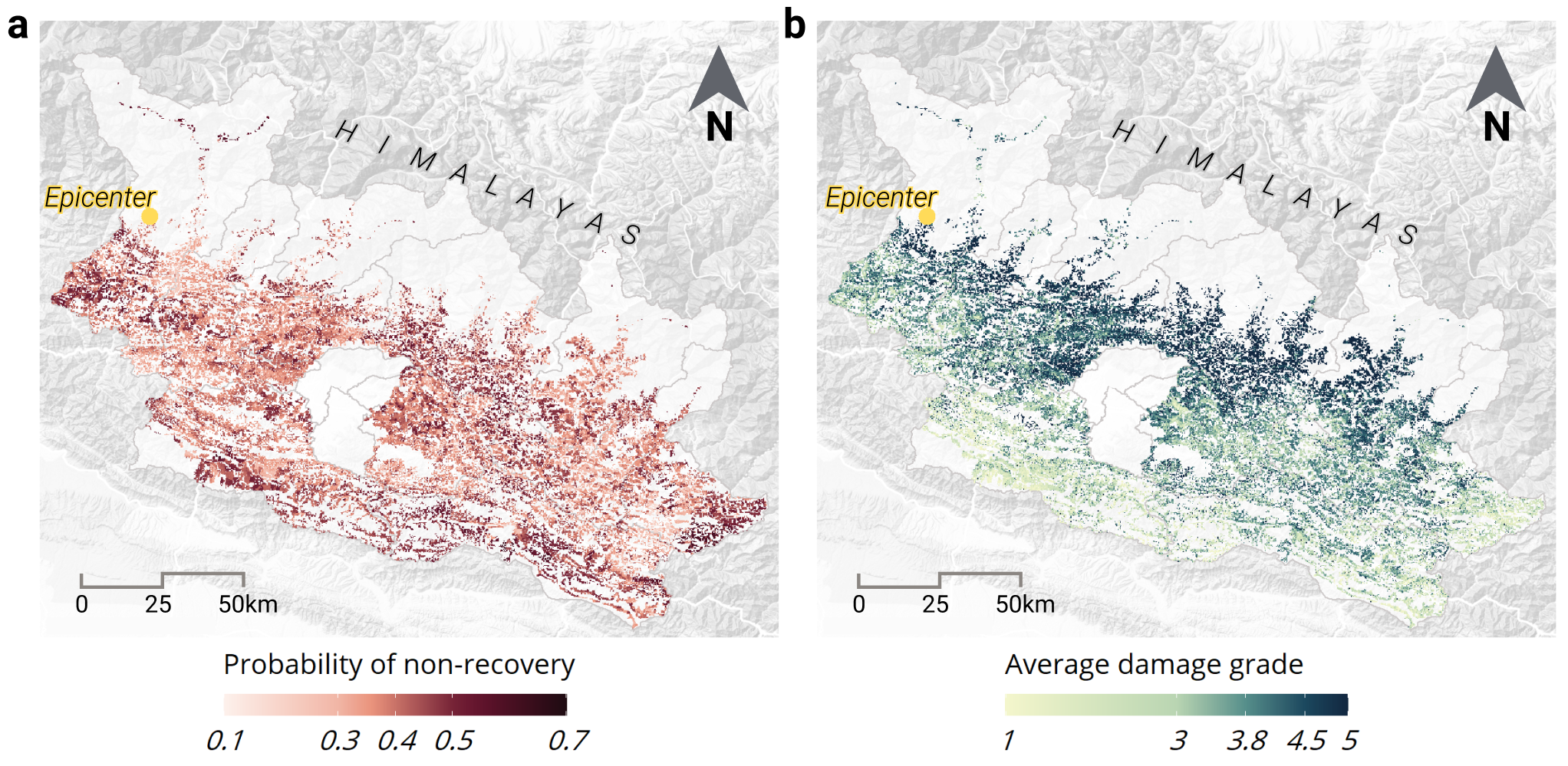
A data-driven approach to rapidly estimate recovery potential to go beyond building damage after disasters
An overview of integrating social equity into risk modeling.
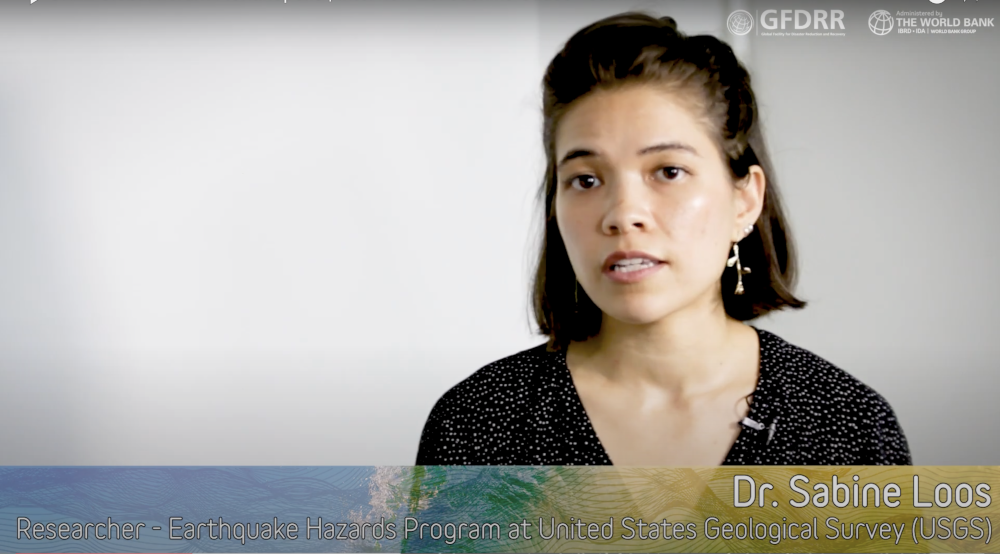
Understanding Risk 2022 -- Interview with Sabine Loos.
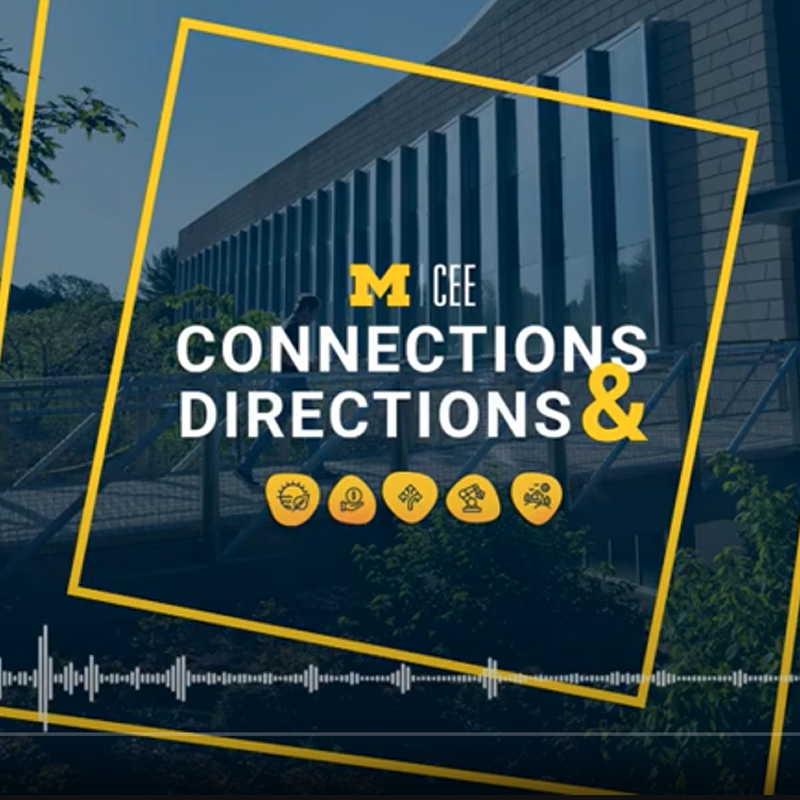
University of Michigan CEE - Introducing Dr. Sabine Loos
Evaluating how effective data integration for damage estimation with different data sources across different contexts.
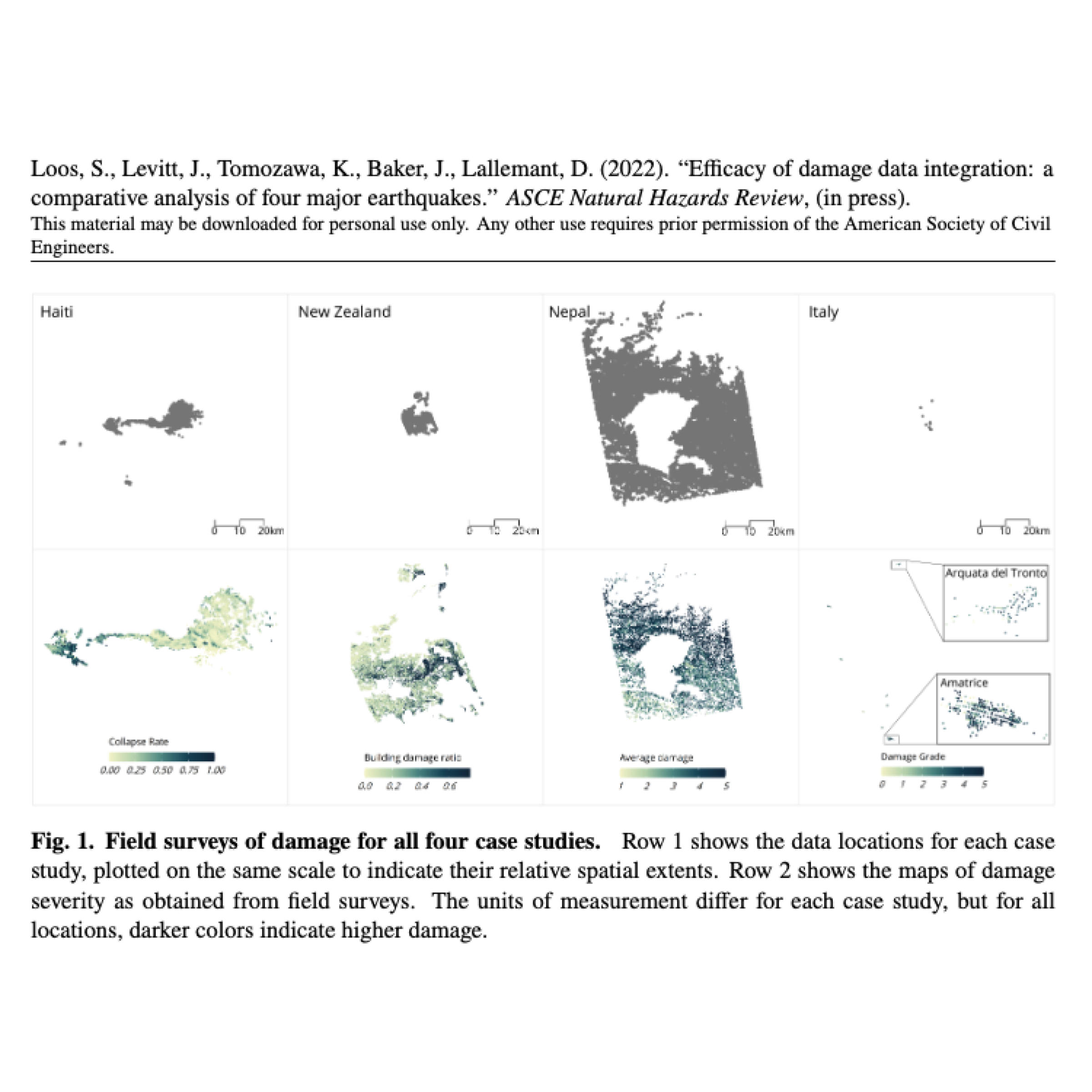
Efficacy of damage data integration: a comparative analysis of four major earthquakes
In this talk, Sabine presents on three main examples of designing earthquake information to be more actionable by centering user needs and more equitable by prioritizing vulnerable populations.
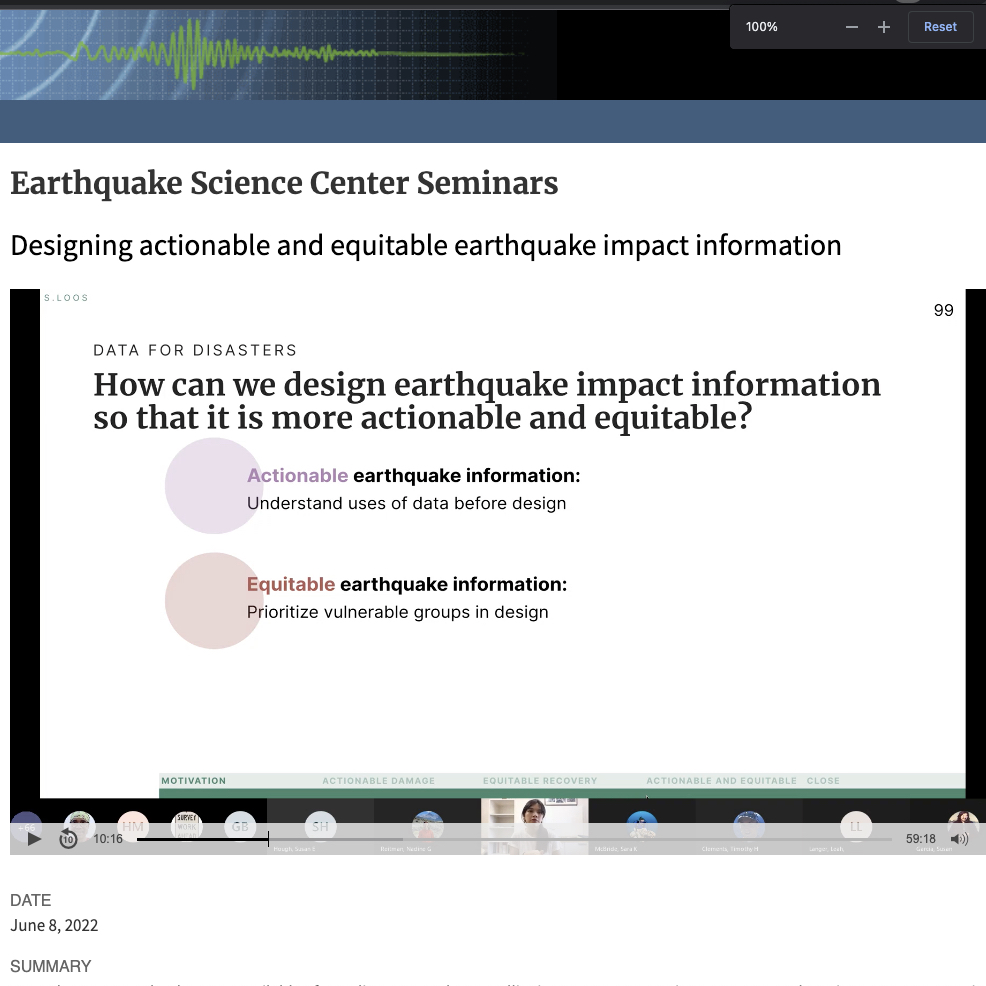
Designing actionable and equitable earthquake impact information
Code to accompany Efficacy of Damage Data Integration: A Comparative Analysis of Four Major Earthquakes published in Natural Hazards Review
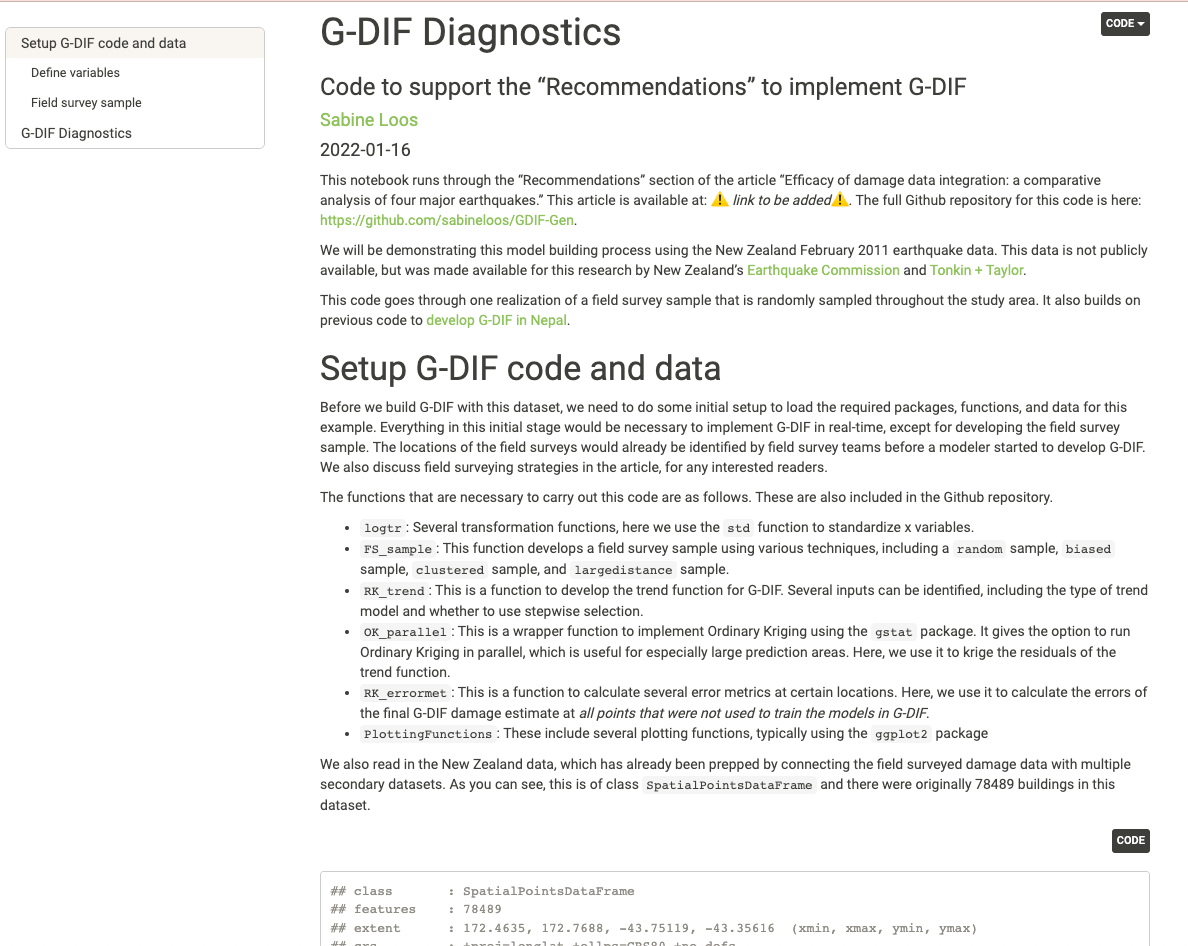
Geostatistical Data Integration Framework Diagnostics Software
If you’re reading this blog post, chances are that you are 1) an early career risk professional and 2) considering whether you should learn more about data visualization. This blog is meant to provide three reasons why you should, from a fellow early career risk professional who started out the journey herself a few years ago.
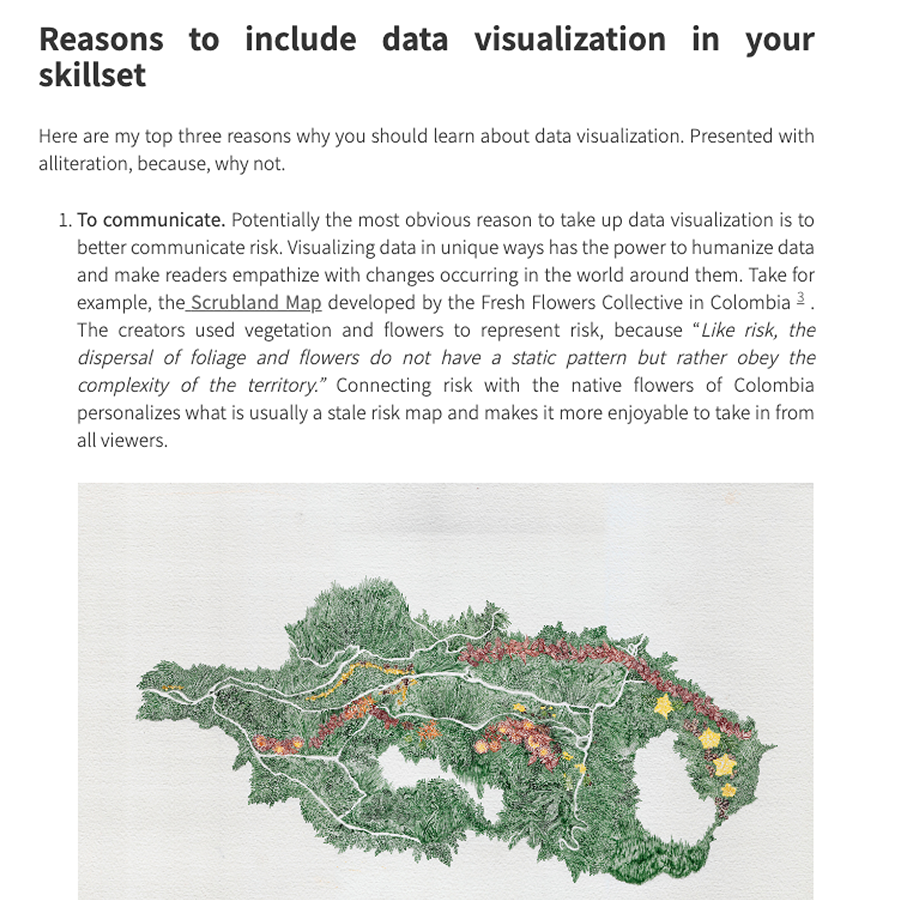
Why you should build your dataviz toolset early
Code to accompany G-DIF: A geospatial data integration framework to rapidly estimate post-earthquake damage published in Earthquake Spectra
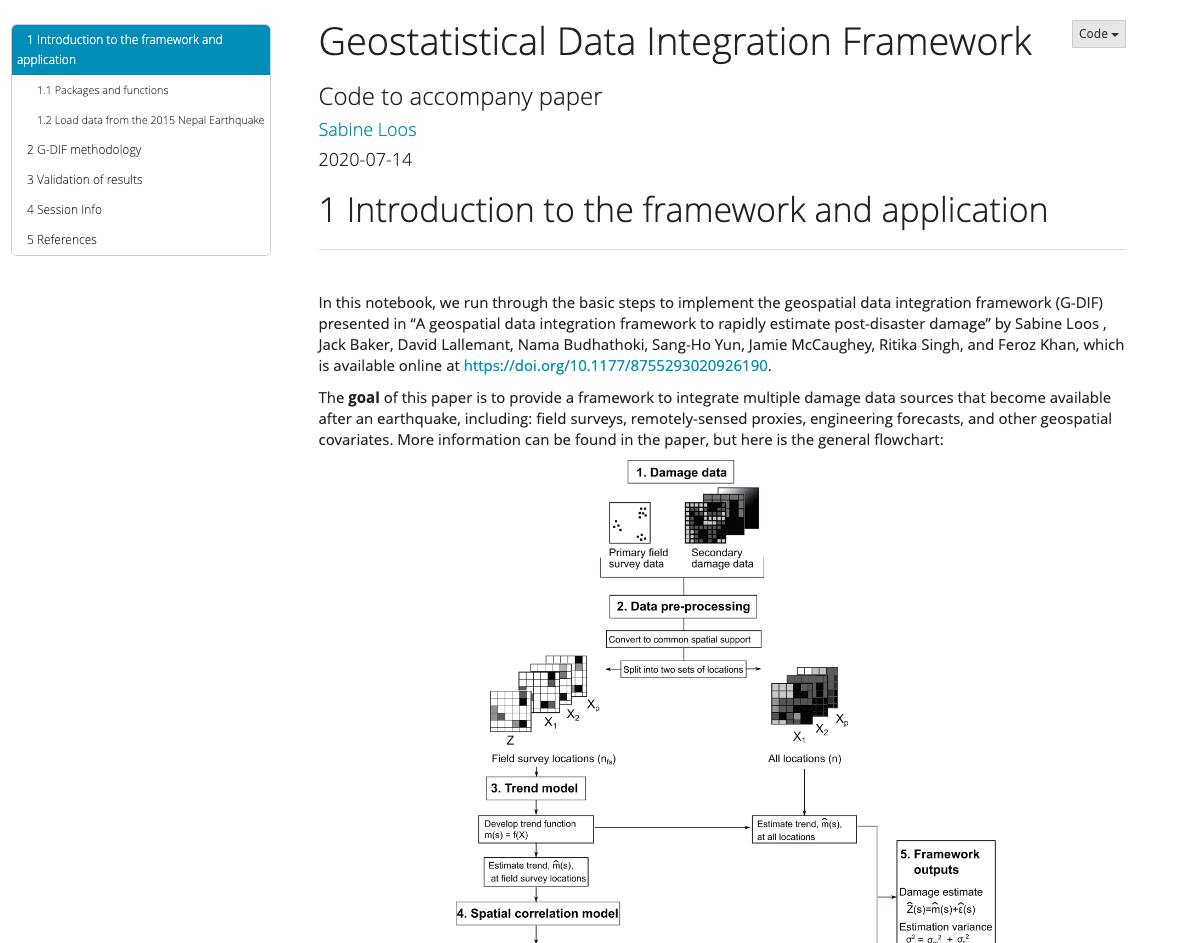
Geostatistical Data Integration Framework Software
An overview of the project for supporting equitable recovery through impact assessments.
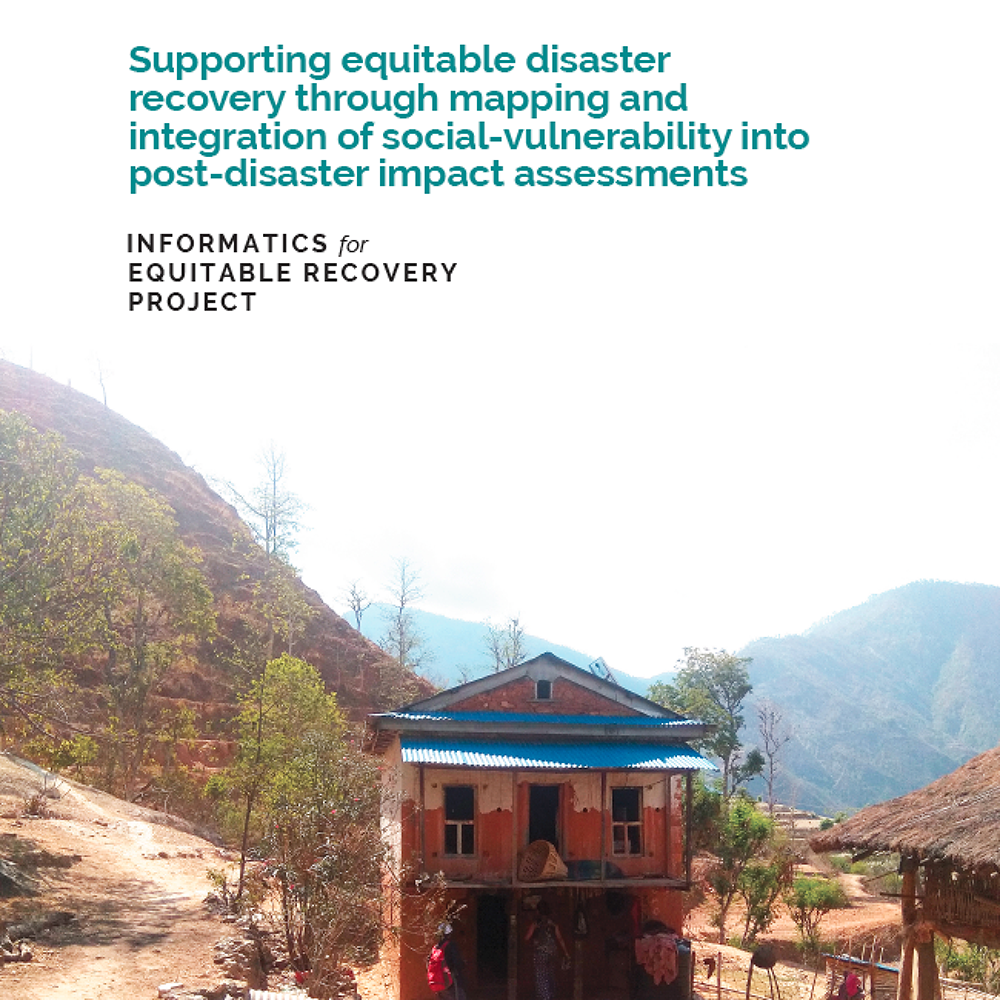
Informatics for equitable recovery: supporting equitable disaster recovery through mapping and integration of social vulnerability into post-disaster impact assessments
A framework that employs geostatistical methods to combine multiple sources of building damage data into one estimate.
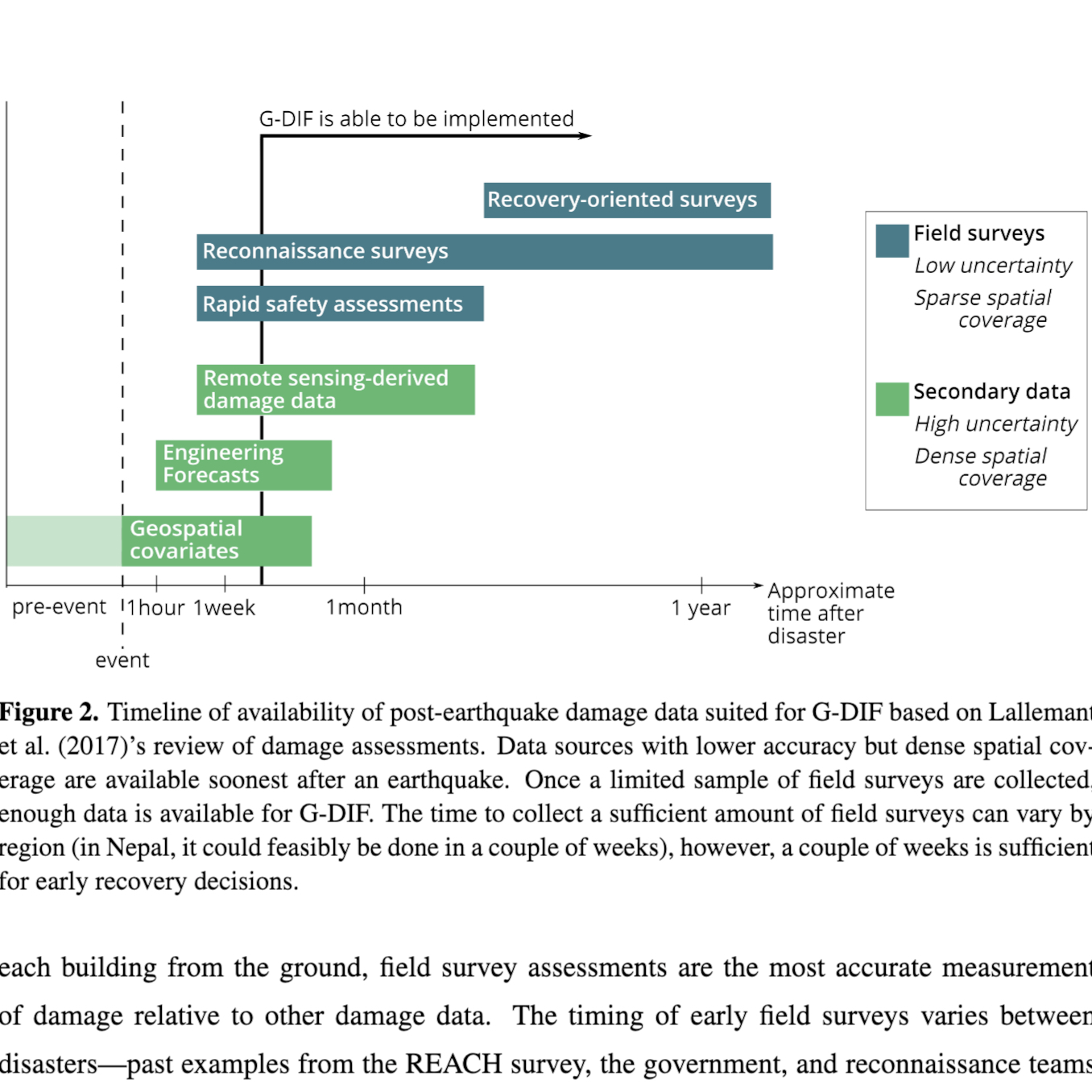
G-DIF: A Geospatial Data Integration Framework to Rapidly Estimate Post-Earthquake Damage
The Asia-Pacific region is an exciting opportunity for transdisciplinary work, because the research space is still rapidly growing and forming, the region is traditionally less data-rich, which inspires more creative data collection and data use; meanwhile, the hazards are numerous and the risks rapidly evolving due to population growth and climate change, and requires the need to balance development with disaster risk reduction.
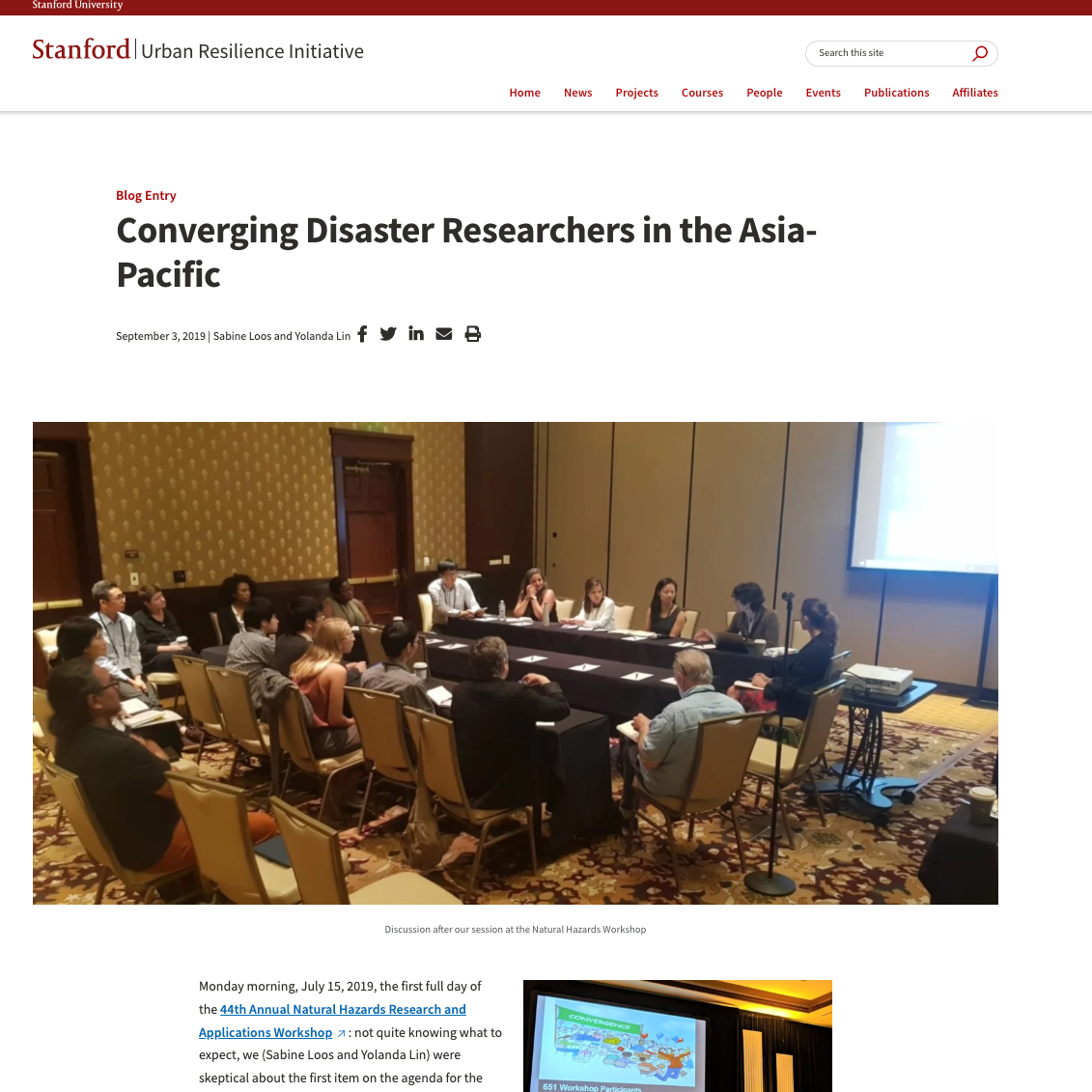
Converging Disaster Researchers in the Asia Pacific
Exploring the impacts and reconstruction of the 2015 Gorkha earthquake.
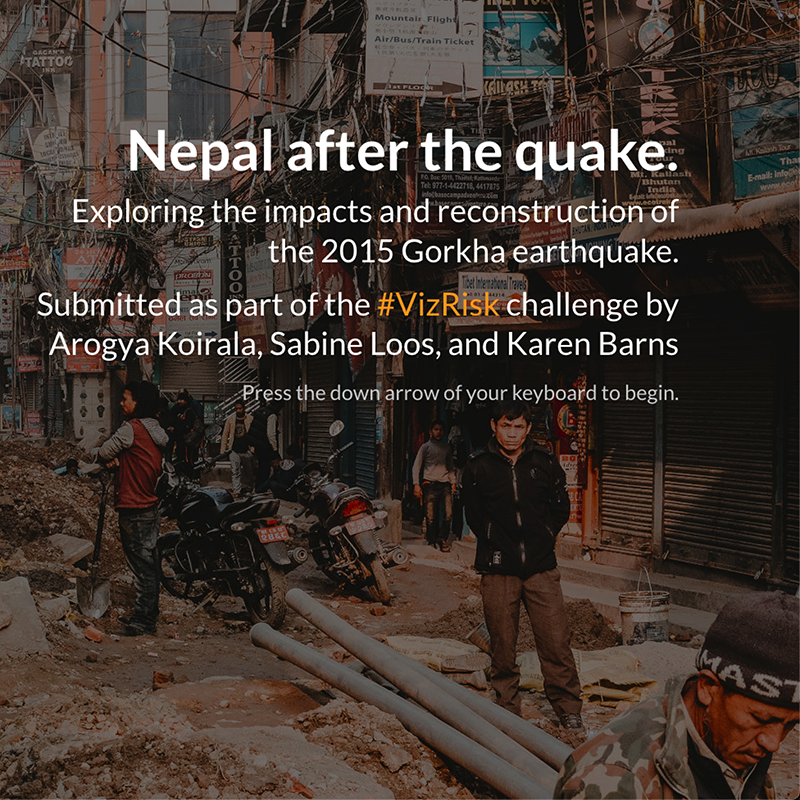
Nepal after the quake.
Sabine Loos presents on her research on the rapid integration of post-disaster data sources as a basis for impact estimation for recovery planning at our 2nd annual Geospatial Analysis for International Development (Geo4Dev) conference.
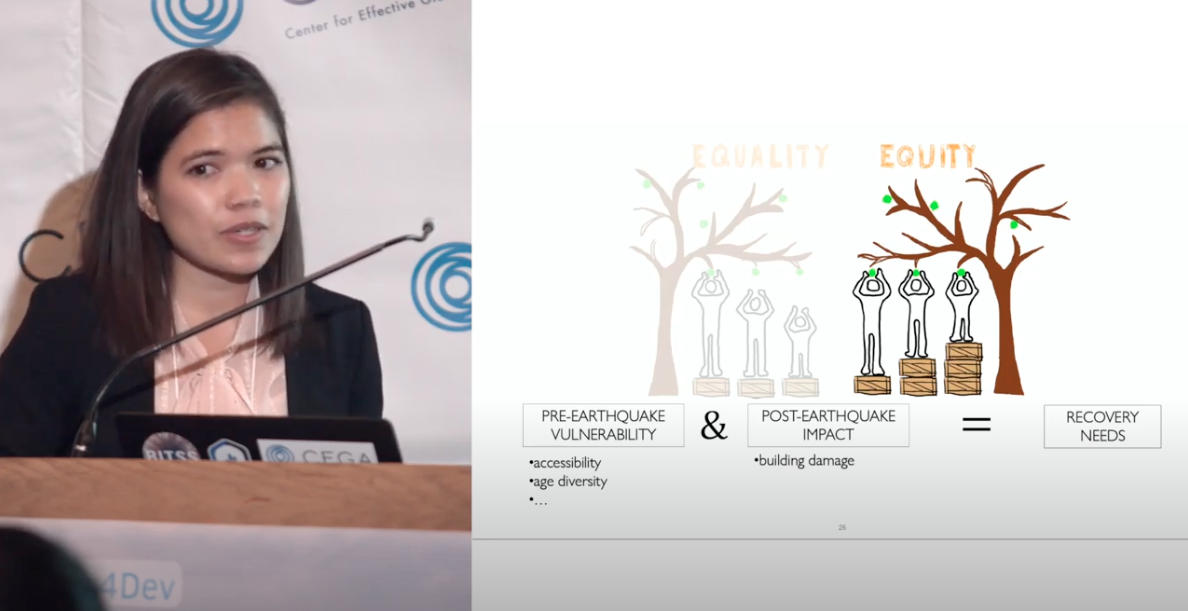
Rapid integration of post-disaster data sources - Sabine Loos
An overview of the development of using remote sensing for crowdsourcec building damage assessment and an evaluation of the uses of this information.
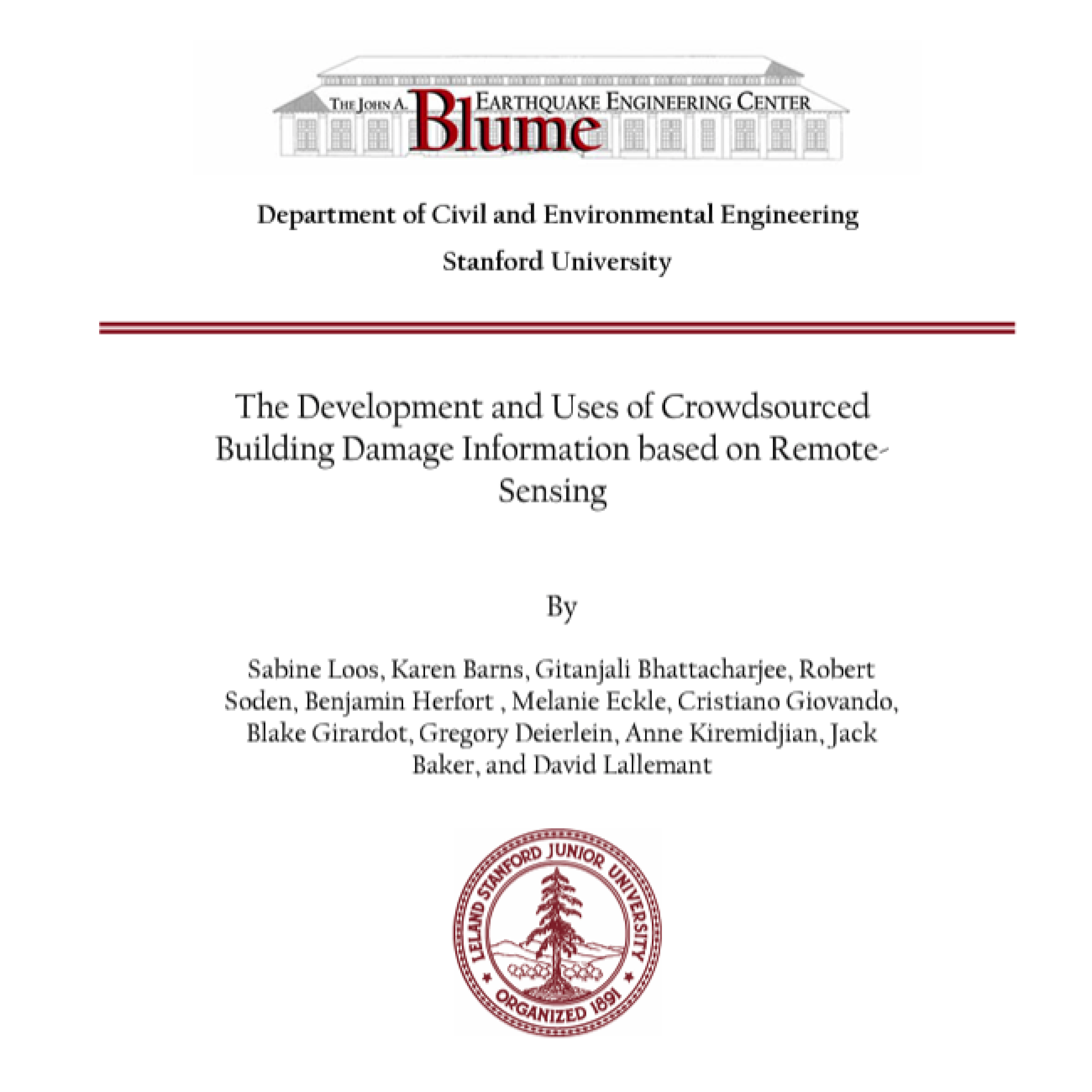
The Development and Uses of Crowdsourced Building Damage Information based on Remote-Sensing
Why we need metrics other than economic losses for smart recovery decisions.
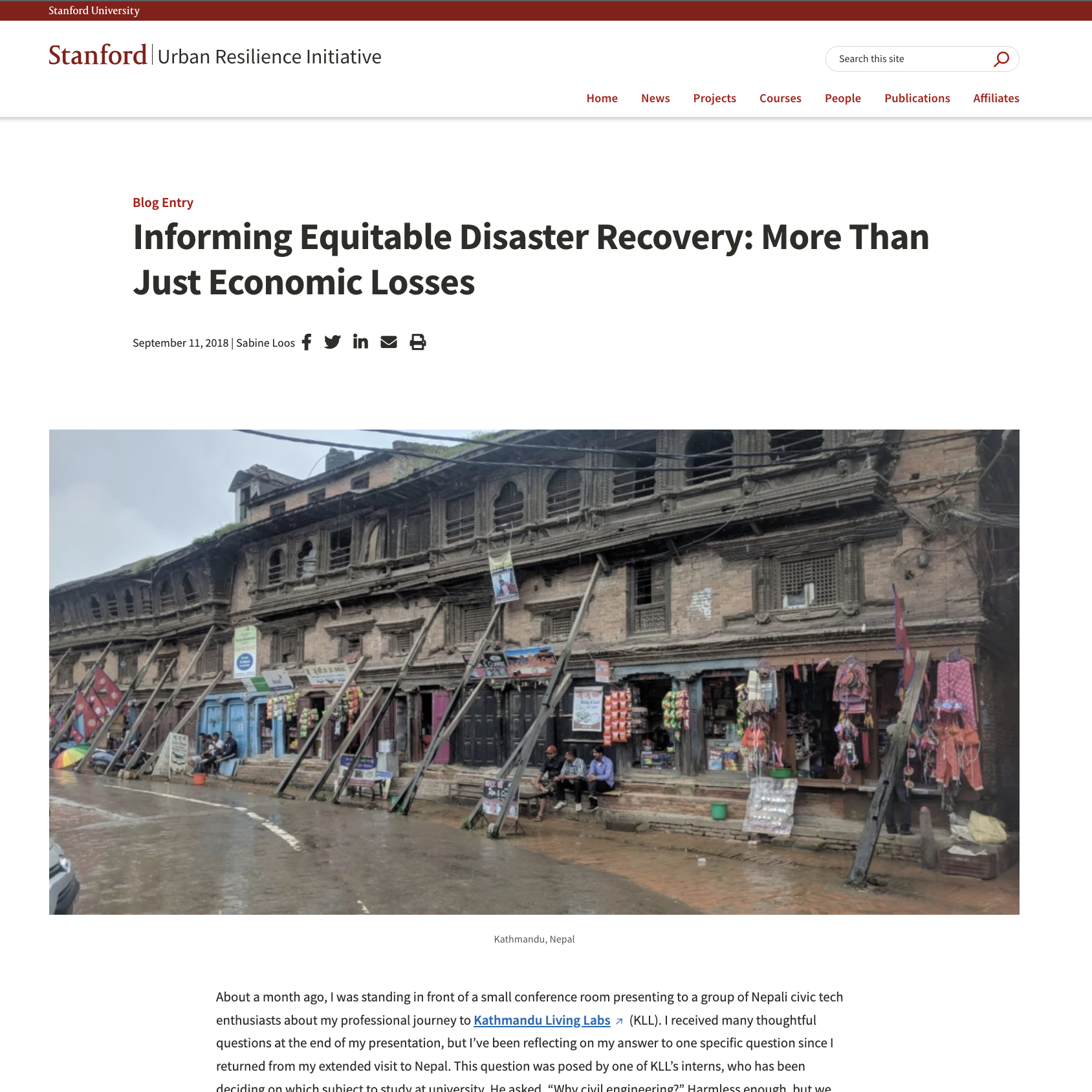
Informing Equitable Disaster Recovery: More Than Just Economic Losses
Comparing three approaches to crowdsource building damage information using satellite imagery after a disaster.
